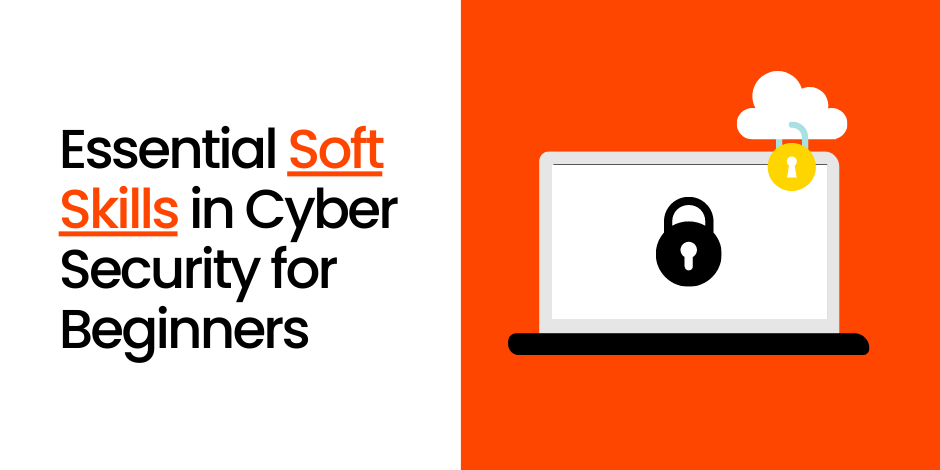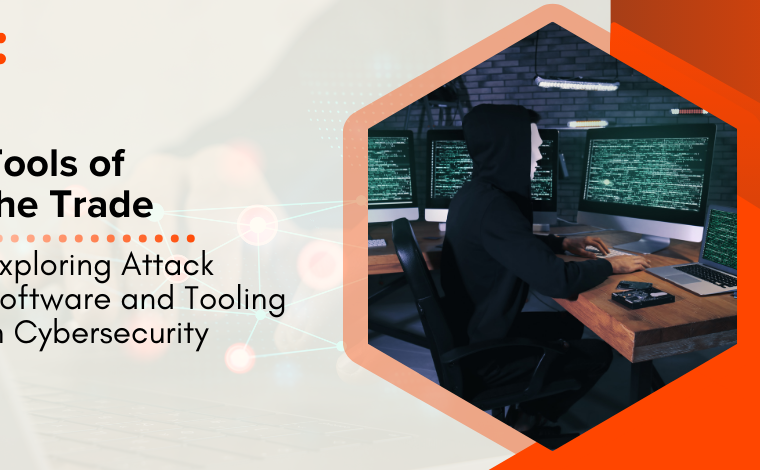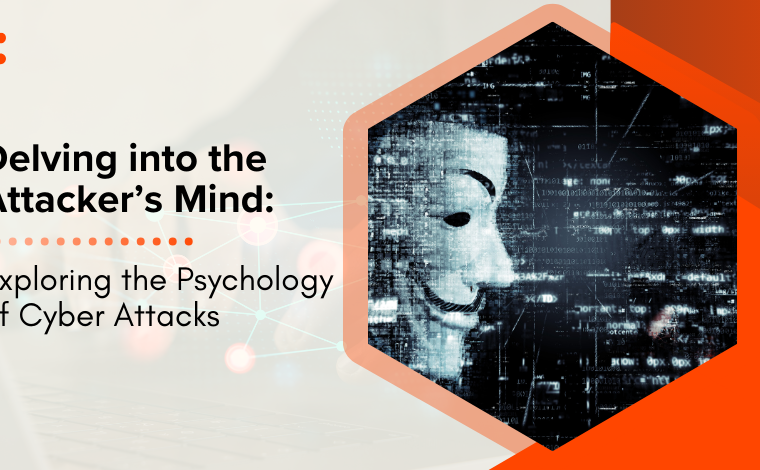Essential Soft Skills in Cyber Security for Beginners

Stay Informed With Our Weekly Newsletter
Receive crucial updates on the ever-evolving landscape of technology and innovation.
Cyber security is a rapidly evolving field, and as a beginner, it’s crucial to acquire the right skills to succeed in this industry. While technical expertise is vital, developing a range of soft skills that can enhance your effectiveness as a cyber security professional is equally essential.
Discover the essential soft skills in cyber security that every beginner should cultivate.
Understanding the importance of soft skills in cyber security

Before we delve into the specific soft skills, let’s first define what soft skills are and why they matter in cyber security. Soft skills refer to personal attributes and abilities that enable individuals to communicate and interact with others effectively.
While technical skills are essential for solving technical challenges, soft skills in cyber security are equally important as they allow professionals to collaborate, communicate, and lead effectively in a team environment.
Defining soft skills
Soft skills include a wide range of abilities that enable individuals to navigate professional relationships and perform their roles with finesse. These skills include but are not limited to:
- Communication
- Problem-solving
- Teamwork
- Leadership
Communication skills are vital in cyber security, enabling professionals to convey complex ideas and concepts. These skills include verbal and written communication, as cyber security professionals often need to write reports, document incidents, and communicate with stakeholders.
Problem-solving skills are crucial in cyber security as professionals need to analyze complex situations, identify vulnerabilities, and develop practical solutions. This requires analytical thinking, creativity, and thinking outside the box.
Teamwork is essential in cyber security as many security incidents require collaboration between various stakeholders.
Cyber security professionals must work effectively with others, building trust, sharing knowledge, and delivering impactful results. This involves not only technical collaboration but also the ability to understand and appreciate diverse perspectives.
Why soft skills in cyber security matter

While technical skills such as programming, network analysis, and incident response are critical in cyber security, soft skills play a crucial role in enabling professionals to excel in their roles. Here are a few reasons why soft skills in cyber security matter:
- Effective communication: Strong communication skills allow cyber security professionals to articulate complex ideas and concepts clearly. This is essential for collaborating with team members, explaining security issues to non-technical stakeholders, and presenting findings to executives.
- Problem-solving: Cyber security professionals with well-developed problem-solving skills can approach challenges with analytical thinking and creativity, enabling them to devise innovative solutions to complex problems.
- Teamwork: Successful cyber security initiatives require collaboration between various stakeholders. Strong teamwork skills enable professionals to work effectively with others, building trust, sharing knowledge, and delivering impactful results.
- Leadership: As cyber security professionals progress in their careers, leadership skills become increasingly important. Being able to lead teams, influence others, and inspire confidence is essential for tackling security threats and driving organizational change.
Soft skills are not just beneficial for individual professionals but also for organizations as a whole. A cyber security team with strong soft skills can foster a positive and collaborative work environment, increasing productivity, efficiency, and overall effectiveness in addressing cyber threats.
Furthermore, soft skills in cyber security are essential because the field is constantly evolving. Technology advances rapidly, and cyber threats become more sophisticated every day.
Soft skills such as adaptability, continuous learning, and critical thinking enable professionals to stay ahead of the curve and effectively respond to emerging challenges.
The role of communication in cyber security
Communication is a foundational skill in cyber security. Whether it’s verbal or written communication, cyber security professionals must be able to effectively convey their ideas, concerns, and findings to various audiences.
Verbal communication skills
Verbal communication is vital in cyber security, especially when collaborating with team members, presenting findings, or leading meetings. Some essential verbal communication skills for cyber security professionals include:
- Articulating technical concepts in a concise and clear manner.
- Active listening and ensuring understanding in conversations.
- Adapting communication style to different audiences.
- Handling conflicts and difficult conversations professionally.
Written communication skills
Written communication is equally important in cyber security. Cyber security professionals must be able to effectively communicate complex technical information through written reports, documentation, and emails.
Key written communication skills include:
- Writing clear and concise reports and documentation.
- Ensuring accuracy and attention to detail in written communication.
- Presenting technical information in a structured and easy-to-understand manner.
- Communicating security risks and recommendations effectively.
Problem-solving: A key skill in cyber security

Problem-solving is at the heart of cyber security. As a beginner in this field, developing strong problem-solving skills is crucial for effectively identifying and mitigating security threats.
Importance of analytical thinking
Analytical thinking is an essential aspect of problem-solving in cyber security. It involves breaking down complex issues into manageable parts, analyzing data, and applying logical reasoning to arrive at solutions.
Developing analytical thinking skills involves:
- Gathering and analyzing relevant information from various sources.
- Identifying patterns and trends in data.
- Applying logical and critical thinking to evaluate options.
- Considering the implications and potential consequences of decisions.
The value of creativity in problem-solving
Creativity is also a valuable skill in problem-solving within cyber security. Cyber threats are constantly evolving, requiring innovative approaches to mitigate risks effectively.
Developing creativity involves:
- Thinking outside the box and investigating unconventional solutions.
- Encouraging a culture of innovation and idea generation.
- Collaborating and brainstorming with team members.
- Keeping up with emerging technologies and trends.
The necessity of teamwork in cyber security
Teamwork is an indispensable skill for cyber security professionals. Collaborating effectively with colleagues, stakeholders, and other teams allows for the successful execution of projects and sharing knowledge and best practices.
Collaborative problem-solving

Cyber security challenges often require the collective efforts of a team to arrive at optimal solutions. Collaborative problem-solving involves:
- Sharing knowledge and insights with team members.
- Building on each other’s ideas to develop comprehensive solutions.
- Effectively delegating tasks and coordinating efforts.
- Respecting diverse perspectives and fostering a supportive team environment.
Building strong relationships within a team
Strong relationships within a team can significantly impact the success of cyber security initiatives. Building relationships involves:
- Active listening and empathy.
- Providing support and assistance to team members.
- Resolving conflicts constructively.
- Recognizing and celebrating team achievements.
Influencing and inspiring others
Being able to influence and inspire others is a valuable skill for cyber security professionals. Building trust and credibility, fostering effective communication, and leading by example are key actions to influence and inspire others.
Conclusion
As a beginner in cyber security, developing the essential soft skills discussed in this article is crucial for success in the industry. While technical skills lay the foundation, soft skills in cyber security enable effective communication, problem-solving, teamwork, and leadership.
By cultivating these skills, you can enhance your effectiveness as a cyber security professional and make a positive impact in the ever-changing landscape of cyber security.
Ready to learn more about the fascinating world of cyber security? The Institute of Data offers in-depth, industry-aligned courses designed to equip you with the knowledge and experience needed to excel in the field.
We also offer free career consultations with our local team if you’d like to discuss your options.




